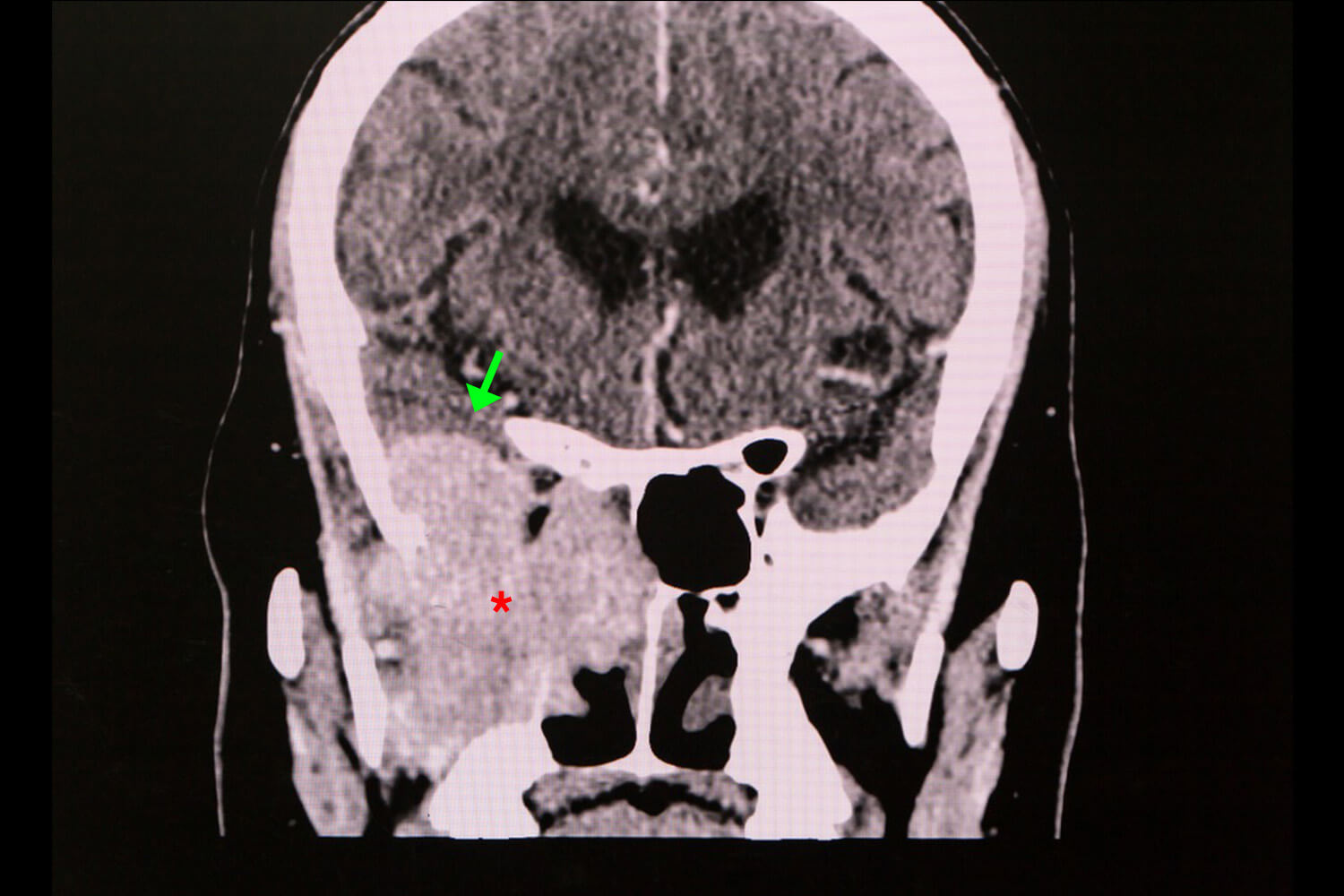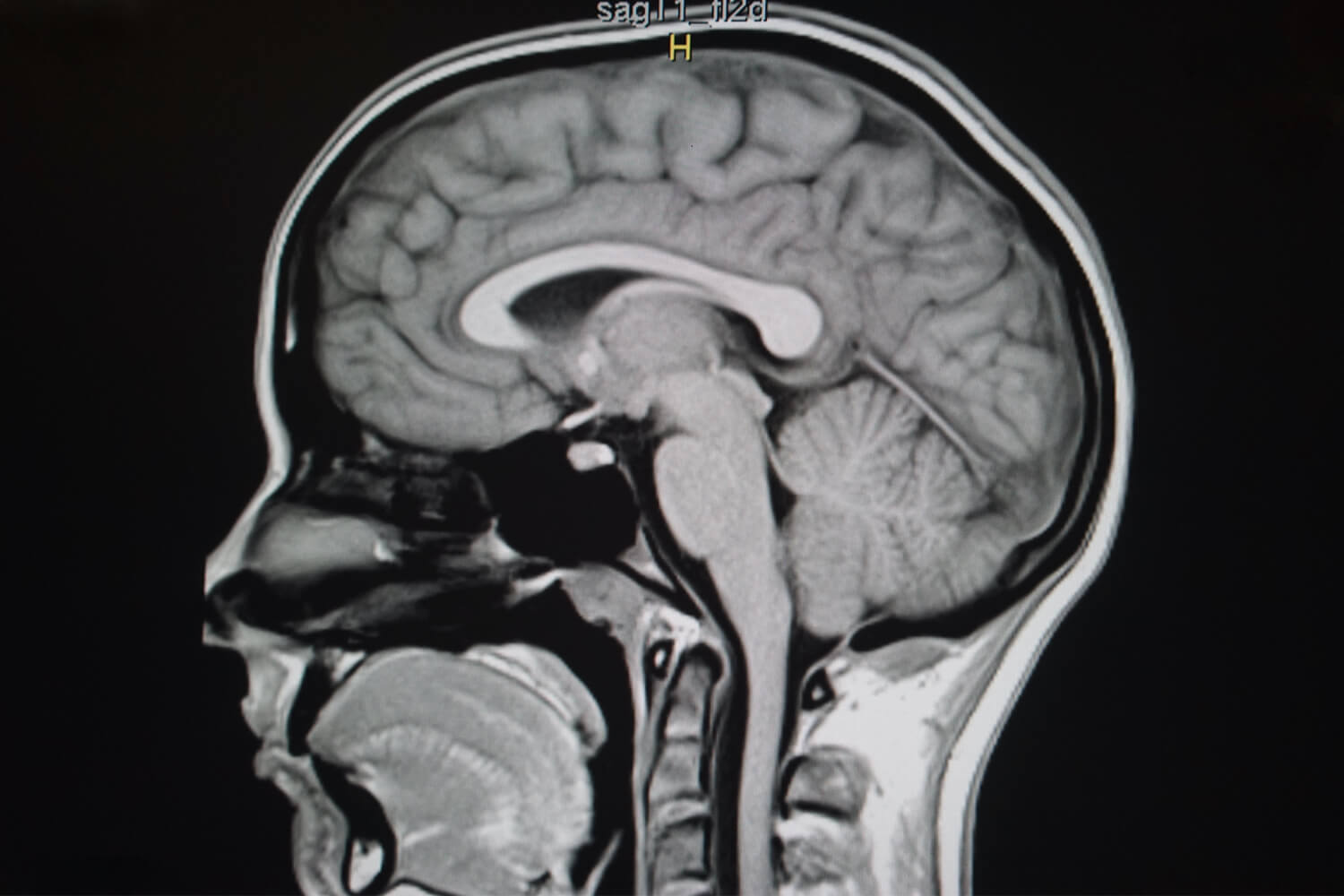What are skull base tumors?
Skull base tumors are sinus or nasal tumors that extend into the brain or eye. Like sinonasal tumors, skull base tumors are categorized by whether they are benign or malignant. The potential danger of skull base tumors depends on the character of the tumor, as well as the surrounding anatomic structures that will be most affected.
![skull-base-tumor-scan]()
Large tumor (red asterisk) causing erosion of the skull base into the brain (green arrow) and other adjacent bony structures.
What are the symptoms associated with skull base tumors?
Many times, skull base tumors are asymptomatic for long periods of time before they begin to cause problems. Tumors that originate in the sinus cavities, for instance, can grow for long periods of time given the large space it can grow in. On the other hand, tumors that begin in the nose are symptomatic earlier because they can more easily cause nasal congestion. Because of the numerous ways these tumors can develop, symptoms are very broad and include:
- Vision loss
- Orbital proptosis (eyeball bulging)
- Nasal congestion
- Anosmia (loss of smell)
- Epistaxis (nosebleeds)
- Headaches
- Neuropathies (nerve dysfunction)
- Alterations in personality
How are skull base tumors treated?
Skull base tumors are typically identified by use of an endoscope in the clinic. Other times, they can be incidentally discovered on imaging studies. Once a tumor has been suspected, a biopsy is taken and sent to a pathologist for diagnosis. Imaging in the form of a CT scan and MRI will be taken to determine the extent of spread. Surgical planning with a neurosurgical team will be required to ensure a thorough resection.
What are pituitary tumors?
Pituitary tumors, such as pituitary adenomas, are a type of skull base tumor that originates from the pituitary gland within the brain. The pituitary gland is small, pea-size gland that protudes from the middle portion of the brain. It is responsible for controlling several hormones throughout body. Tumors of the pituitary can be removed endoscopically.



